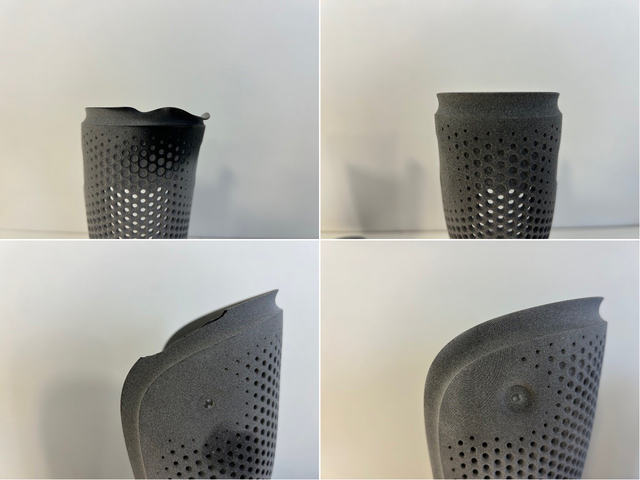PartneR: ING Corporation, spol. s r.o.
FIELD: Biotechnology, Health care
ING Corporation, Ltd. focuses on research, development and manufacturing of medical devices. It uses modern technologies (3D printing, CNC machining) and advanced materials (composites, silicones, engineering plastics, light metals). It is one of the leading companies in the Czech market in prosthetics.
The goal of the collaboration with the National Competence Centre in HPC was to develop and verify effective procedures for analysing the shape of manufactured products, especially focusing on identifying possible inaccuracies. First, it was about processing a dataset that represents scans of 3D product data. In the second place, the aim was to design a solution that predicts potential defects and deformities of final products. Typically, the final products are manually inspected by a specialist. However, a machine vision solution can offer a significantly more efficient and accurate approach. Utilizing supercomputers becomes essential for efficiently processing large volumes of data, specifically point cloud data, and it can enable the creation of accurate prediction algorithms.
Our solution is based on Convolutional Neural Networks (CNNs), specifically using the PointNet architecture, to generate descriptive points and relevant information that characterize the product. This information determines whether the product’s shape meets the standards. The detection process works with product design data and post-production product data. We use data in the form of a 3D point cloud. The algorithm calculates the manufacturing error rate by comparing the final product to its proposed construction. Our approach provides only a first glimpse of the solution to the problem. To achieve better results, more production data would be needed.
 The first column shows two different types of product deformation. As you can see, the shape of the product is damaged. The next column shows the final product that meets the quality standards.
The first column shows two different types of product deformation. As you can see, the shape of the product is damaged. The next column shows the final product that meets the quality standards.
PARTNER´S NOTE
Jiří Rosický, CEO of ING corporation
„The proposed solution can make production more efficient thanks to the possibility of detecting non-conforming products. In the next phase, it would be possible to use the results to identify problematic parts of the product design itself. It would further improve the efficiency of the entire design-manufacturing process.“
The EuroCC2 project supported this cooperation. This project has received funding from the European High-Performance Computing Joint Undertaking (JU) under grant agreement No 951732. The JU receives support from the European Union’s Horizon 2020 research and innovation programme and Germany, Bulgaria, Austria, Croatia, Cyprus, the Czech Republic, Denmark, Estonia, Finland, Greece, Hungary, Ireland, Italy, Lithuania, Latvia, Poland, Portugal, Romania, Slovenia, Spain, Sweden, the United Kingdom, France, the Netherlands, Belgium, Luxembourg, Slovakia, Norway, Switzerland, Turkey, Republic of North Macedonia, Iceland, Montenegro. This project has received funding from the Ministry of Education, Youth and Sports of the Czech Republic (ID:MC2101).

